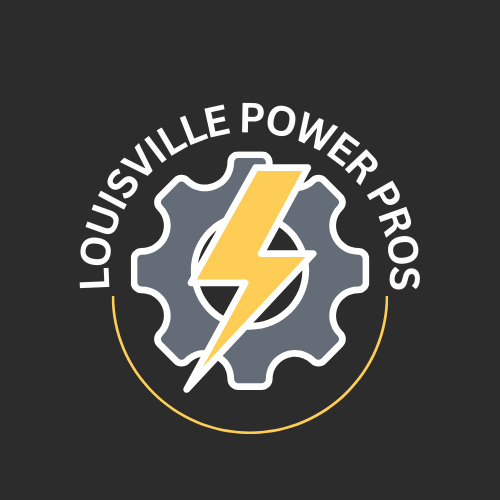
Whole House Generators in South Parkland KY
A whole house generator is a vital asset for ensuring your home remains powered during outages. These systems provide uninterrupted electricity to your entire home, making them an excellent choice for those seeking reliable backup power.
A whole house generator is a backup power system designed to supply electricity to your entire home during a power outage. Unlike portable generators, which only power selected appliances or circuits, whole house generators can handle all your home's electrical needs. There are several types, including standby generators, which are permanently installed and automatically turn on during an outage, and manual transfer generators, which require manual intervention to start and switch the power.
What We Offer
Our company specializes in providing high-quality whole house generators that cater to the needs of South Parkland residents. We offer a range of models suited to various home sizes and power requirements. Our services include not only the supply of generators but also professional installation and ongoing maintenance to ensure your system remains in top condition.
- Solar Generators
- Generator Repairs
- Generator Maintenance
- Generator Parts

We will get back to you as soon as possible.
Please try again later.
How They Differ from Portable Generators
Whole house generators differ significantly from portable generators. While portable generators are often used for temporary power and can be moved from one location to another, they typically have limited power capacity and require manual setup. In contrast, whole house generators are permanently installed and automatically start when needed, providing a seamless transition from grid power to backup power without any manual effort.
How They Work
Whole house generators operate through an automatic transfer switch that detects power outages and starts the generator within seconds. The system is connected to your home's electrical panel, allowing it to supply power to all circuits. Once the main power is restored, the generator automatically shuts off, and your home switches back to the grid.
Fuel Types: Natural Gas, Propane, Diesel
Whole house generators can be powered by different types of fuel, including natural gas, propane, and diesel. Natural gas generators are often preferred for their convenience and cost-effectiveness, as they are connected to your home's existing gas supply. Propane generators are a good choice if natural gas is not available, and they offer a longer storage life. Diesel generators are known for their durability and are often used in commercial settings but can also serve residential needs.
Continuous Power vs. Limited Power from Portable Options
One of the main advantages of a whole house generator over a portable generator is its ability to provide continuous power to your entire home. Portable generators are typically limited in their power output and can only run a few essential appliances at a time. Whole house generators, on the other hand, can handle the full load of your home’s electrical system, ensuring that all your appliances and systems continue to function normally during an outage.
Installation Process
The installation of a whole house generator involves several steps. First, a professional will assess your home’s power needs and determine the appropriate size and type of generator. Next, they will install the generator in a suitable location, typically outside your home, and connect it to your electrical panel. The process also includes installing an automatic transfer switch that ensures a seamless transition between grid power and generator power.
Maintenance and Upkeep
To keep your whole house generator functioning optimally, regular maintenance is essential. This includes routine inspections, oil changes, and testing the system to ensure it operates correctly. Many providers offer maintenance plans that include scheduled service visits to address any potential issues before they become problems.
Average Costs for Purchase, Installation, and Maintenance
The cost of a whole house generator can vary based on its size and the specific requirements of your home. On average, purchasing a generator can cost between $5,000 and $10,000. Installation costs may add an additional $2,000 to $5,000, depending on the complexity of the installation and local labor rates. Maintenance costs generally range from $200 to $500 annually, depending on the service plan you choose.
When to Consider Installing a Whole House Generator
A whole house generator is a wise investment if you live in an area prone to frequent power outages or if you rely heavily on electricity for essential services. It is also beneficial for those who want the peace of mind that comes with knowing their home will have continuous power during an emergency.
Choosing the Right Generator for Your Home
Selecting the right whole house generator involves considering several factors, including your home’s size, the number of electrical appliances, and your budget. Consulting with a professional can help you make an informed decision, ensuring that the generator you choose meets your needs and fits within your budget.
Key Benefits
Whole house generators provide numerous benefits, including uninterrupted power during outages, increased home value, and peace of mind. They ensure that all your appliances, from refrigerators to heating systems, continue to operate smoothly, enhancing your comfort and safety.
Contact Us Today
If you’re considering installing a
whole house generator in South Parkland, KY, contact us today. Our team of experts is here to help you choose the perfect generator for your home and provide professional installation and maintenance services. Don’t wait for the next power outage to disrupt your life—ensure your home is always powered with a reliable whole house generator.
Let's Connect!
For reliable whole-house generator services, trust
us. Our expert team offers turnkey installation, top-of-the-line Generac technology, and regular maintenance to keep your home powered during outages. Hire us for peace of mind and uninterrupted comfort when you need it most.